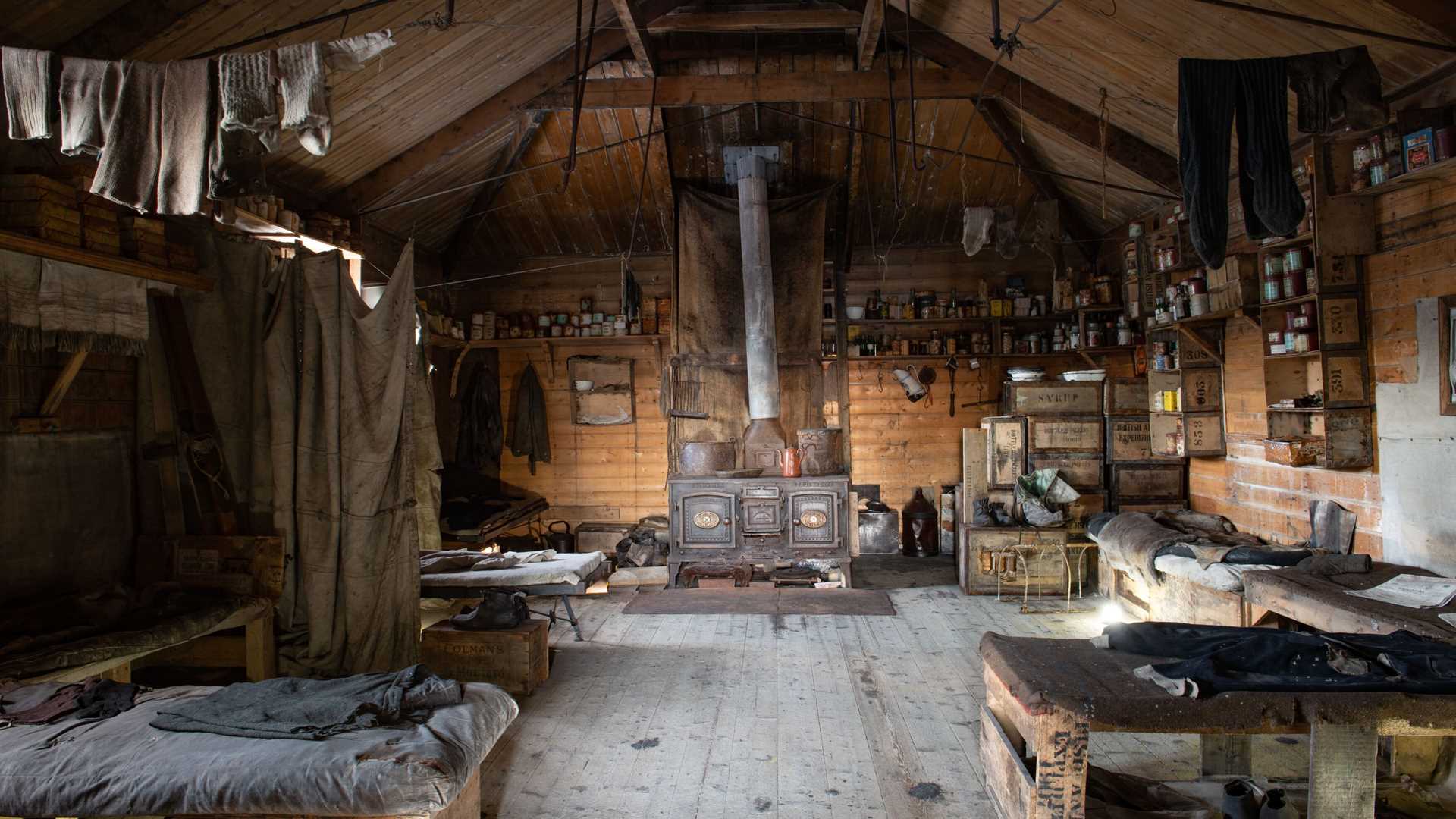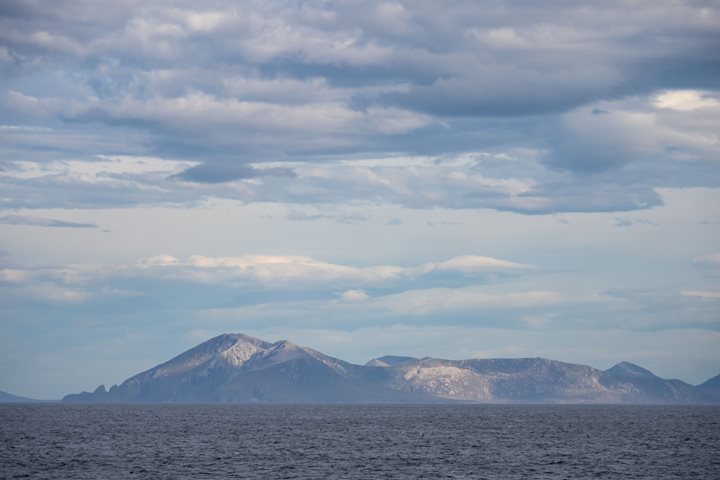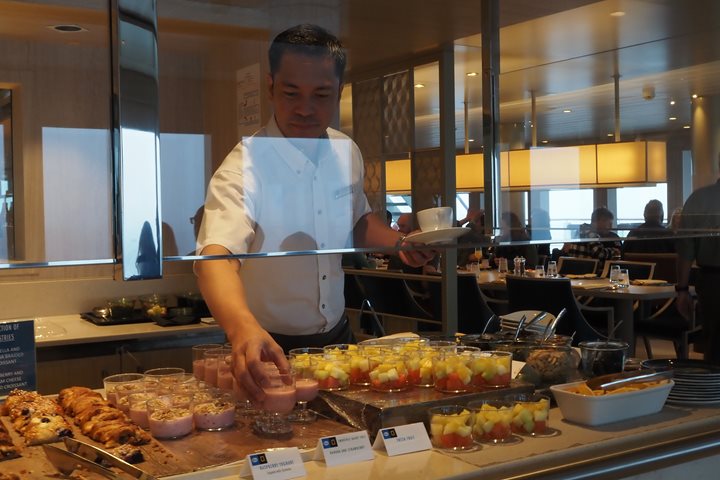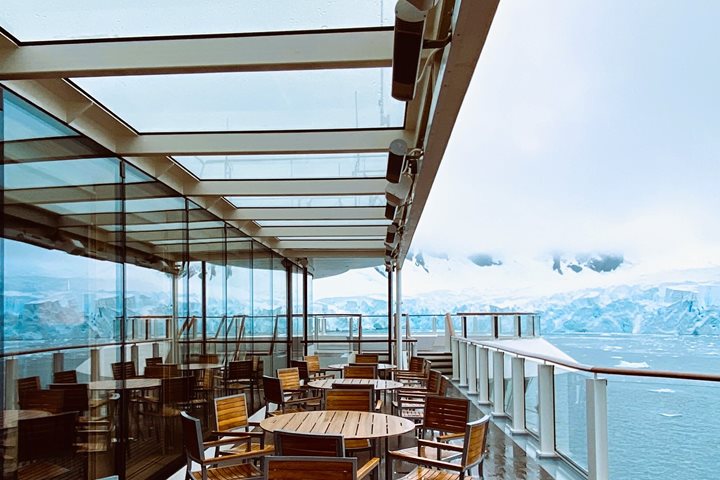We spent the night in Backdoor Bay in McMurdo Sound on Ross Island. The bay is directly behind Earnest Shackleton’s hut on Cape Royds. It was cold and overcast. We were able to traverse a small section of sea ice to gain access to Ross Island. Mt. Erebus looms over Cape Royds, and the area is dotted with Adelie penguins. This colony of Adelies is the southernmost penguin breeding colony in the world and the location of one of the longest existing studies on Adelie penguins.
The hut sits higher than Sir Robert Falcon Scott’s hut at Cape Evans. The New Zealand Antarctic Heritage Trust has spent years restoring the artifacts of the historic hut and maintains the building and its contents to preserve the site. The beautiful artifacts make it look as though the men just left and could return at any moment. Candles are stacked high on the shelves, and a crate of whiskey was pulled from under the building in 2010 and placed inside. This whiskey remained hidden under the floorboards for nearly a century. It was untouched by Shackleton’s men, as it was intended for a celebration when Shackleton completed his expedition. The men of the Ross Sea Party did not know that Shackleton never made it to the continent. It is a privilege to step back in time like this, and the experience is not something easily explained. Nor is it something that will be easily forgotten.
Down from the hut and back on the sea ice, we were greeted with the sounds of Weddell seals using the tide crack as a breathing hole. Weddell seals know that persistent cracks form in the sea ice where it connects to the fast ice at the shore. The tide continues to rise and fall, taking the sea ice with it and generating a crack along the shore. Seals use this area for pupping and resting, as it is safe from predators that cannot or will not venture under the ice cover. Chirps, trills, clicks, and bass booms traveled up through the ice. Two young animals frolicked in an open water area. In between the ice, we observed hundreds if not thousands of sea angels. Tiny pteropods are shell-less snails. They have a modified foot that allows them to swim like a butterfly. Life is everywhere here if you know where to look.









